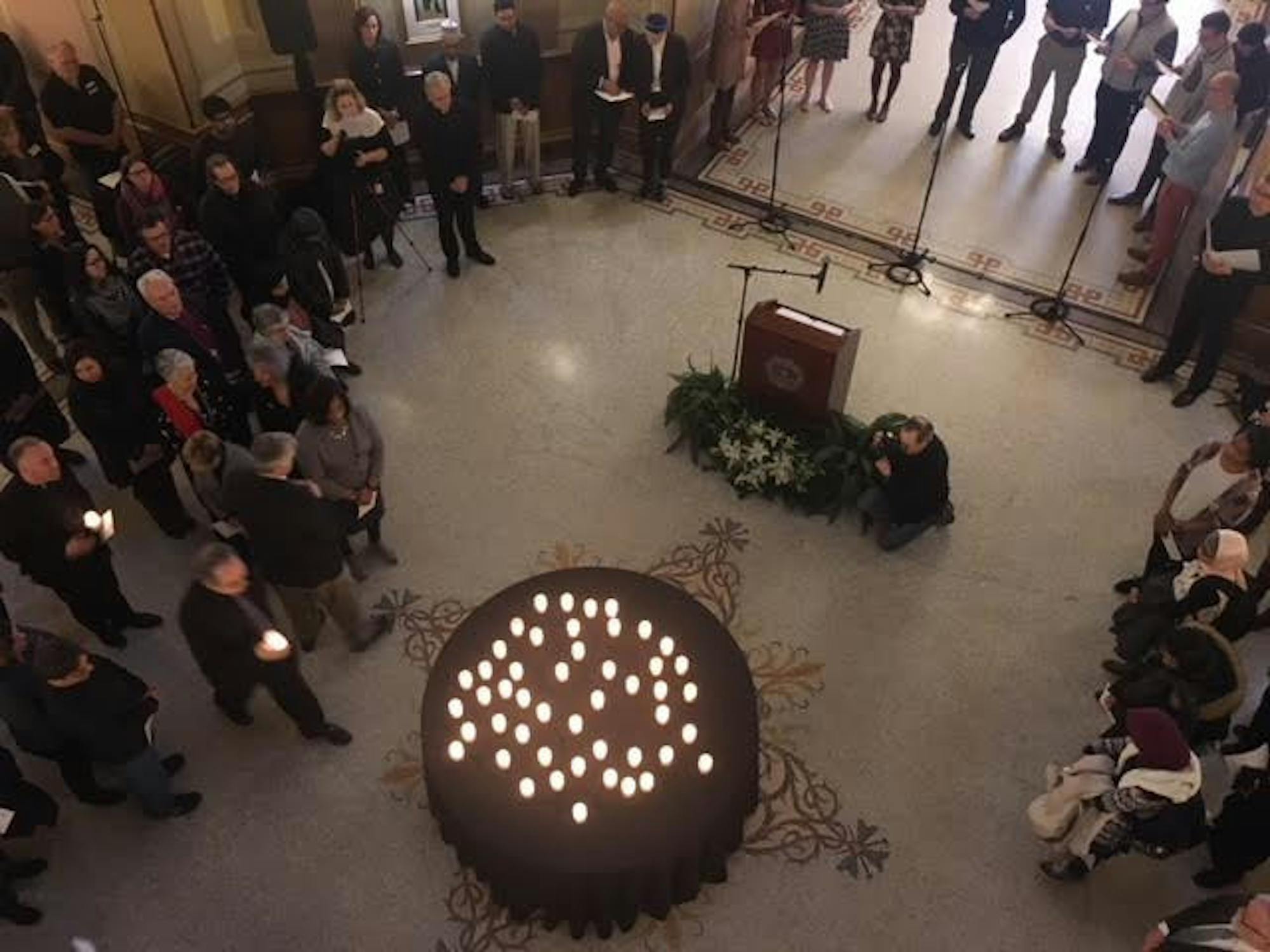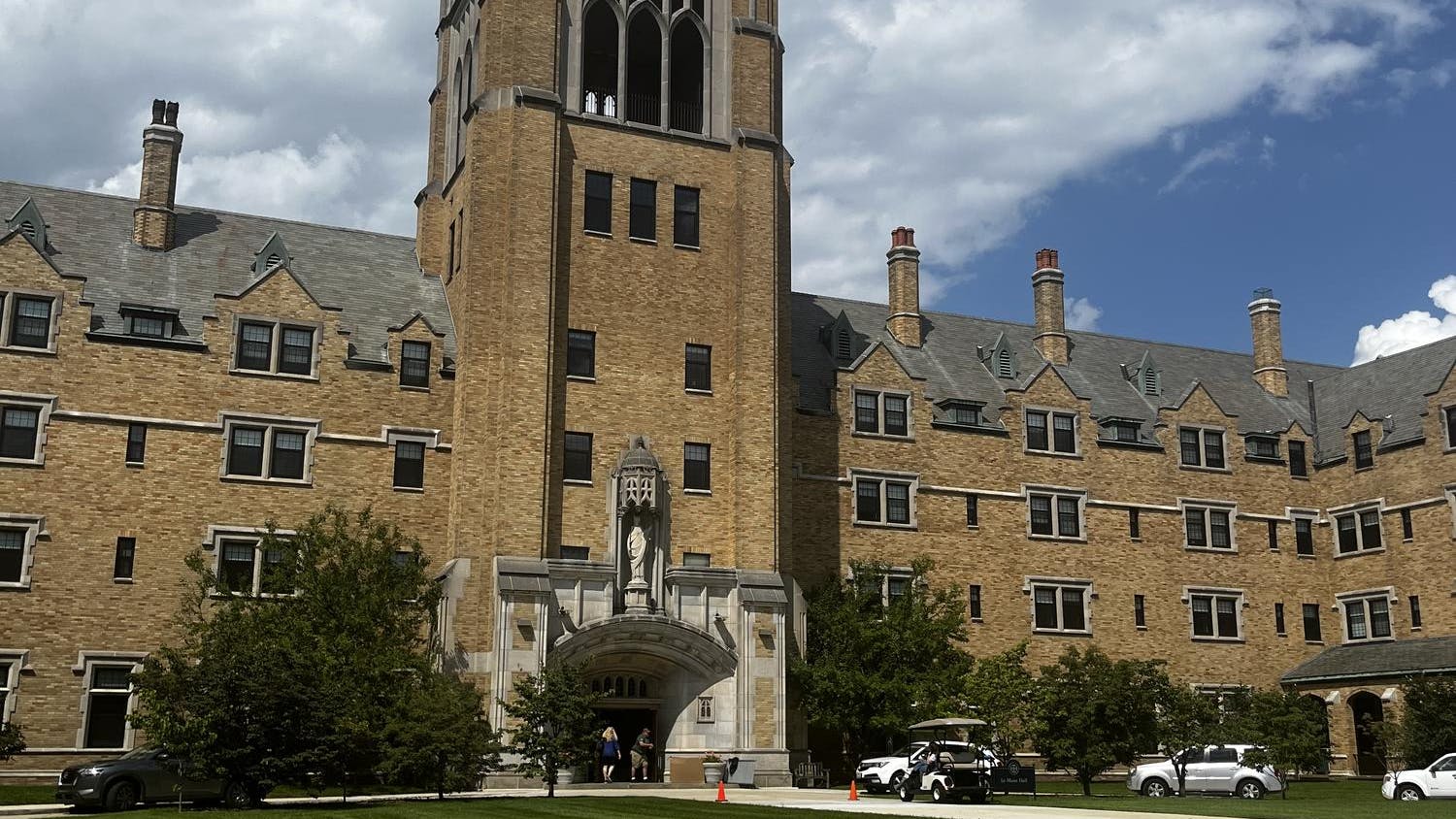Members of the Notre Dame community gathered in Main Building on Thursday to pray in remembrance of the 50 victims killed at two mosques last Friday in Christchurch, New Zealand.
Rabbi Karen Companez of Temple Beth-El in South Bend offered a message of solidarity and expressed sadness in light of the massacre.
“We mourn the deaths of the [50] people who were murdered in this outrageous and heinous act by a gunman who was fueled by a perverted ideology, and we pray for the swift return to health of those who lie injured still in hospital,” Companez said. “We ask ourselves yet again, how long with this needless sacrifice of human life go on? How many more innocent people will become victims of this time of senseless violence, and how many more mornings will we awaken to reports of such mind-numbing horror?”
Though tragedies can sometimes make people feel helpless, Companez said a way to try to take action is to reach out to those who might come from different backgrounds and to form friendships of tolerance and unity.
“As we stand here this morning, still in a state of shock and disbelief, we wonder what else we can do in the face of such an act,” Companez said. “Something that each one of us can do is to forge, develop and continue personal relationships with people who are in some way different from us. For only by discovering that there is way more that unites us than that divides us will we ever be able to disrupt this seemingly endless cycle of violence. So here’s my suggestion — reach out to someone who’s different from you. Say hello. Start a relationship, and then nurture it, grow it and treasure it.”
University President Fr. John Jenkins also offered words of support to the communities affected by the shootings.
“The killings give rise to so many thoughts and emotions in us — profound sadness, anger, questions of why, perhaps even feelings of helplessness and despair in a world with so much hatred and violence,” Jenkins said. “We each must acknowledge and work through these various emotions. I hope that this prayer service today can help us heal. As Rabbi Companez said, perhaps it can encourage us to reach out and develop a friendship with someone who is different than us.”
Jenkins also apologized for his statement earlier in the week that he said caused controversy among certain members of the community.
“I myself must ask forgiveness, for I issued a statement earlier this week that, though certainly unintentionally, was seen by some as not respectful to our Muslim brothers and sisters,” he said. “It was a reminder to me and perhaps to the rest of us that we must never tire in our efforts to reach out, to listen to one another, to understand one another, to overcome misunderstandings and to find that what we have in common is so much deeper than what divides us.”
Jenkins closed his speech with a challenge to everyone to counter the acts of violence with love and acceptance instead of more violence and destruction.
“Let us not be tempted ever to respond to anger and violence with more anger and violence,” he said. “Let us allow this terrible tragedy to inspire us to find a different path, let us ask God, who, as our Muslim brothers and sisters remind us, [is] merciful and kind, to help us to find the connections, build the bridges and put on love — the perfect bond of unity.”
Ebrahim Moosa, professor of Islamic studies at Notre Dame, reflected on the shooting and violence against religious communities in today’s world. Moosa said in the face of such horrific acts, it is necessary for people to recover their humanity.
“The list of such tragedies grows longer, and becomes more depressing if we monitor this type of wild violence, which is becoming all too frequent and unchecked,” he said. “To recover our humanity, we must ask communities of faith [to] stand up to this mindless violence and actively campaign not only against those who perpetuate such heinous acts, but also to expose those who aid and abet such hate and inhumanity.”
Moosa added that in this time of sadness and trial, it is necessary to turn to the comfort that faith in God can provide.
“May we in our time of sadness and vulnerability rely on the bountiful mercy and compassion of God and trust in ourselves and in others in order to stand firm against all forms of dehumanization, brutality and evil,” Moosa said. “Recognizing the amazing grace and compassion of God, we shall overcome and we will respond with that which is beautiful and better.”













